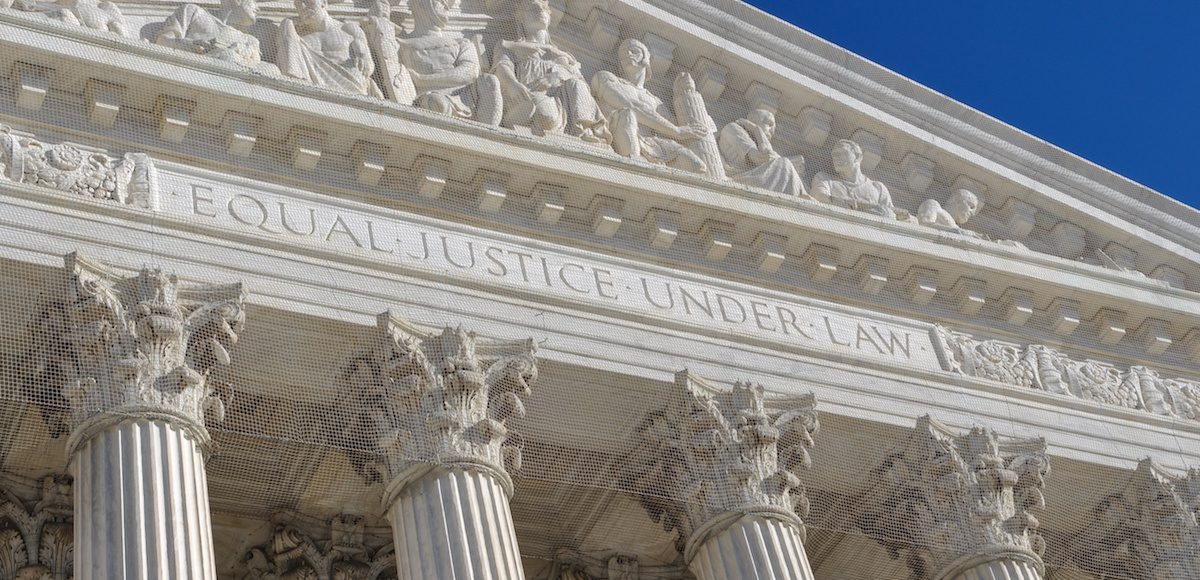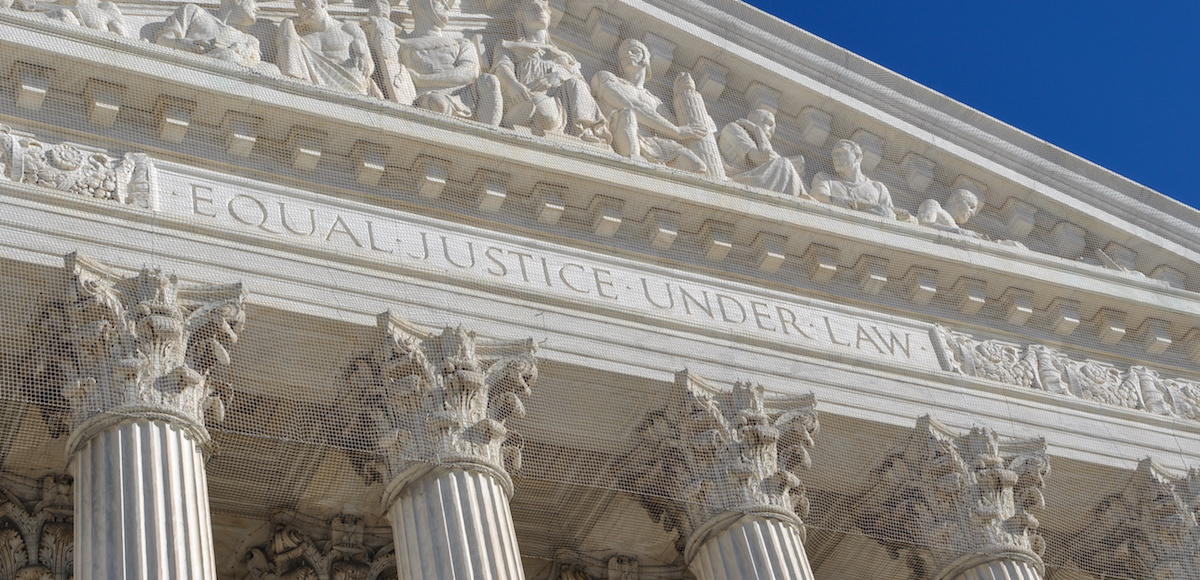

The Supreme Court of the United States (SCOTUS). (Photo: AdobeStock/bbourdages)
The U.S. Supreme Court ruled 5 to 4 on Thursday that states can force online retailers to collect what could amount to billions of dollars in sales tax. The narrow ruling against Wayfair, Overstock.com and Newegg, is a big blow to eCommerce companies.
Justice Antony Kennedy wrote the majority opinion, which conservative Justices Clarence Thomas, Samuel Alito and Neil Gorsuch joined, along with liberal Ruth Ginsburg. Justices Thomas and Gorsuch filed concurrent opinions, while Chief Justice John Roberts dissented in an opinion joined by liberals Stephen Breyer, Sonia Sotomayor and Elena Kagan.
The majority essentially overturned a High Court precedent going back to 1992, which barred states from requiring businesses with no “physical presence” in that state, like out-of-state online retailers, to collect sales taxes.
“From early in its history, a central function of this Court has been to adjudicate disputes that require interpretation of the Commerce Clause in order to determine its meaning, its reach, and the extent to which it limits state regulations of commerce,” Justice Kennedy wrote, adding the companies’ “critiques underscore that the physical presence rule, both as first formulated and as applied today, is an incorrect interpretation of the Commerce Clause.”
Justice Gorsuch, a conservative nominated by President Donald Trump and confirmed by the U.S. Senate despite Democratic obstruction, appeared very concerned with the unfair advantage eCommerce retailers have over brick-and-mortar operations.
“For years they [court precedent cases] have enforced a judicially created tax break for out-of-state Internet and mail-order firms at the expense of in-state brick-and-mortar rivals,” he wrote in a joining opinion. “Today we put Bellas Hess and Quill to rest and rightly end the paradox of condemning interstate discrimination in the national economy while promoting it ourselves.”
The ruling is a victory for the state of South Dakota, the lawmakers in the state who passed the 2016 law, and the Trump Administration that backed the state. A federal report indicates that the ruling could open up another $13 billion in annual revenue. A Barclays research note claims the states that are likely to see the biggest percentage increase in revenue are Louisiana, Tennessee, South Dakota, Oklahoma and Alabama.
However, not everyone on the right is pleased with the decision.
“We fought the American Revolution in large part to oppose the very idea of taxation without representation,” Americans for Tax Reform President Grover Norquist said of the decision. “Today, the Supreme Court announced, ‘oops’ governments can now tax those outside their borders—those who have no political power, no vote, no voice.”
Scott Drenkard, the Director of State Projects at the Tax Foundation, disagrees and says the reactions from those like Mr. Norquist are “overblown.”
“This is overblown,” he said. “The tax is on consumers in your state (who have a vote), and it is the same tax for goods sold in the state and goods shipped into the state.”








Jeff A. Taylor / June 21, 2018
@DagnyDelinquent This is bad law. Transaction taxes are supposed to be related in some way to a ben… https://t.co/gCOtSOA87m
/